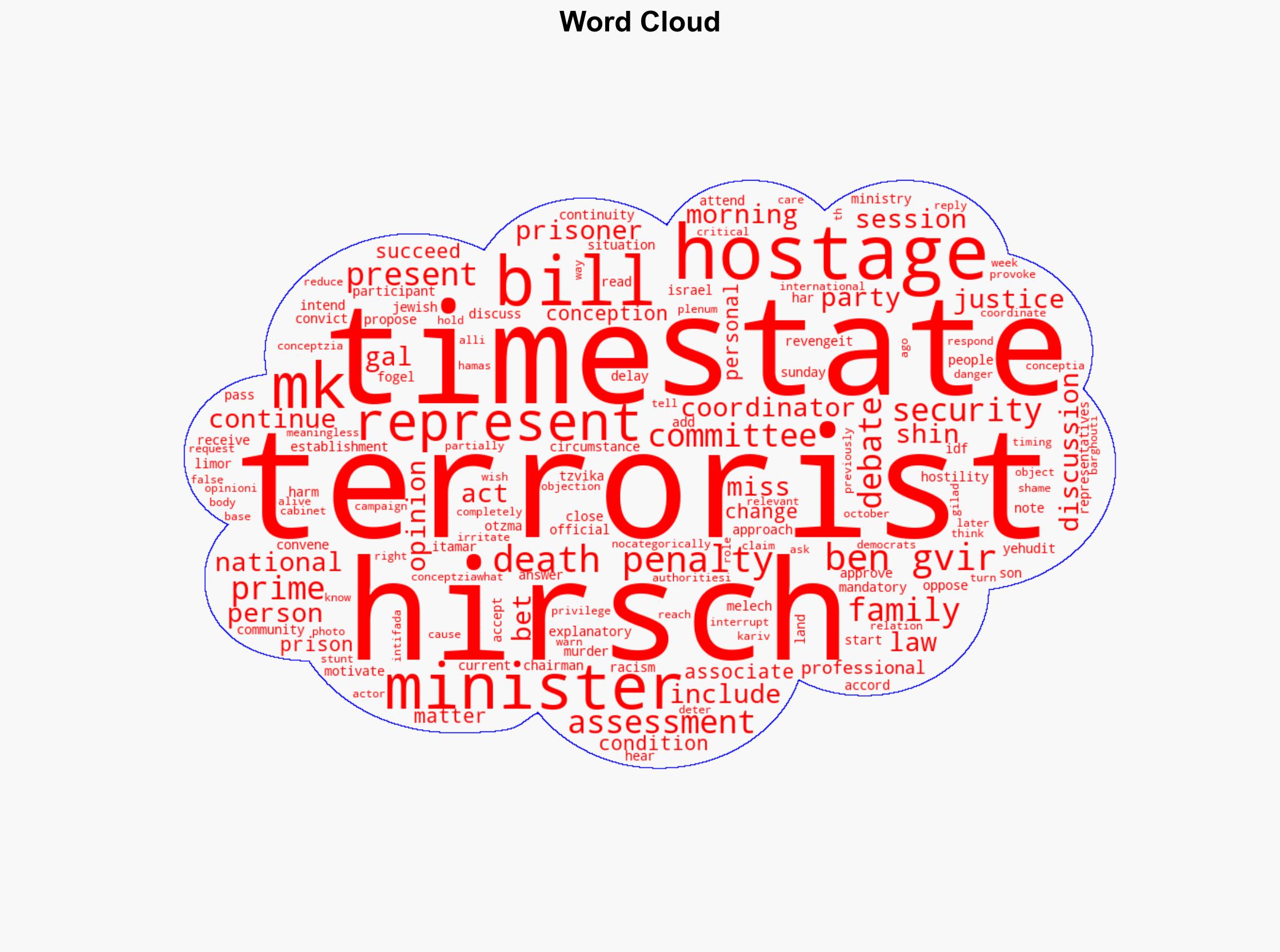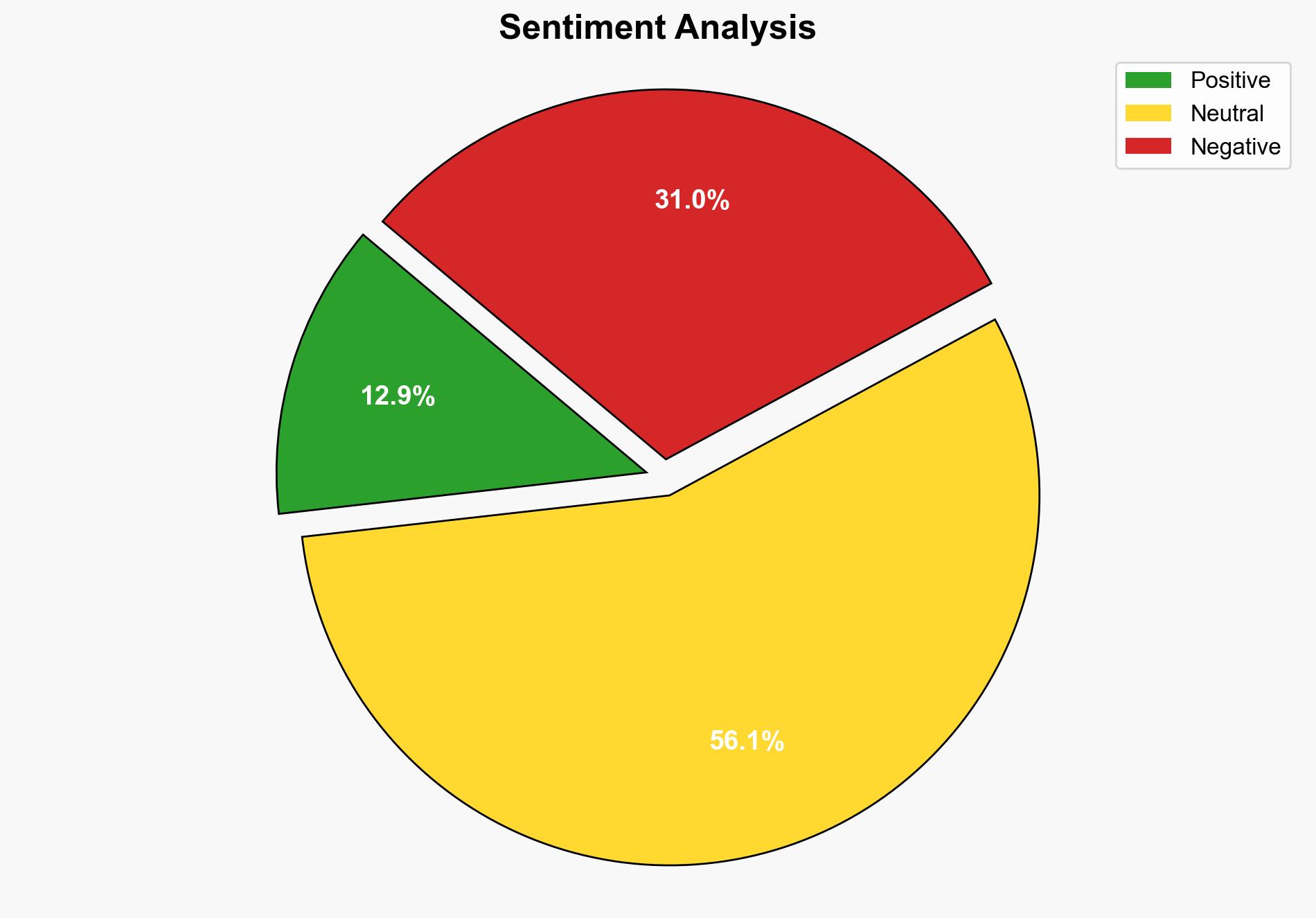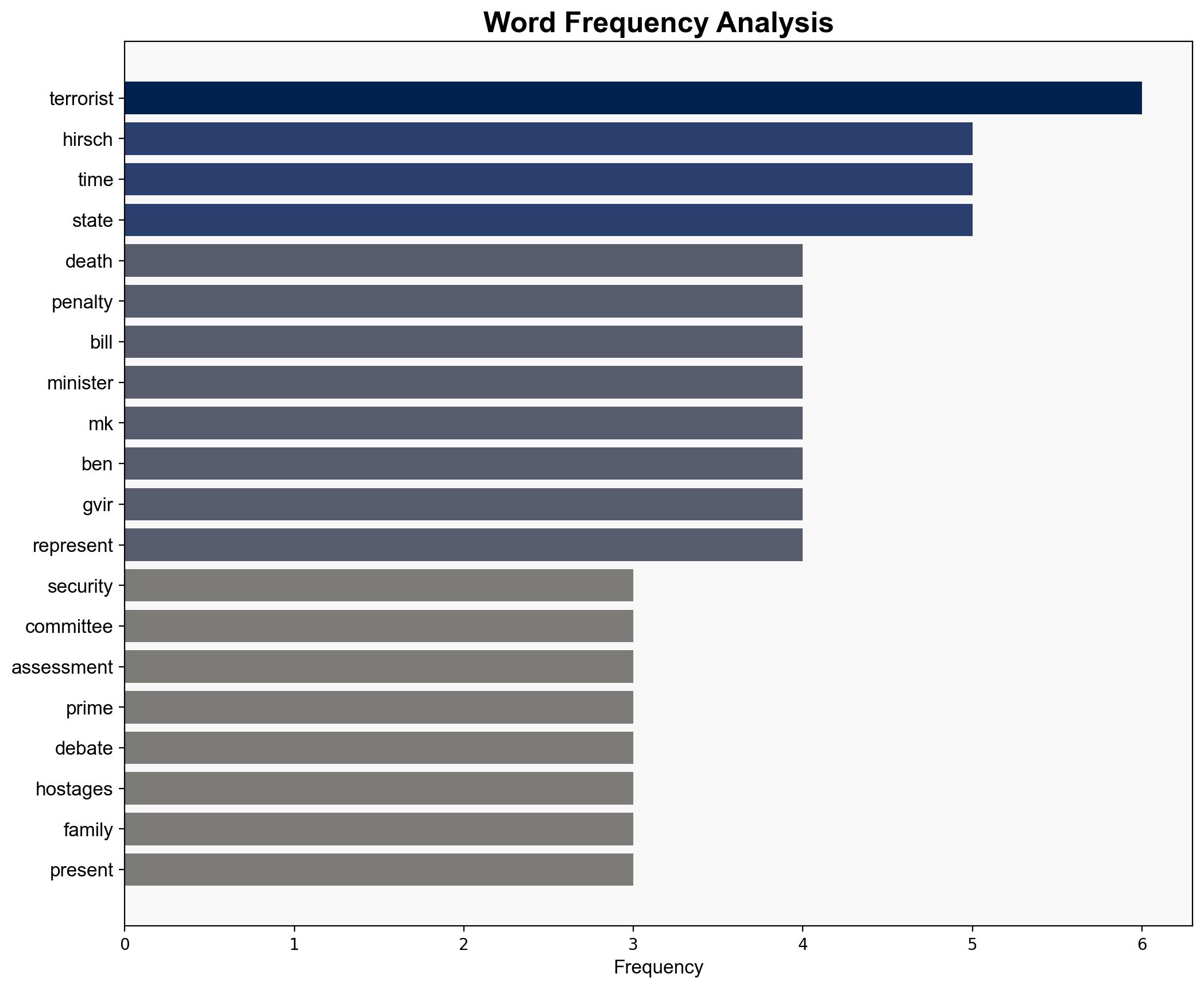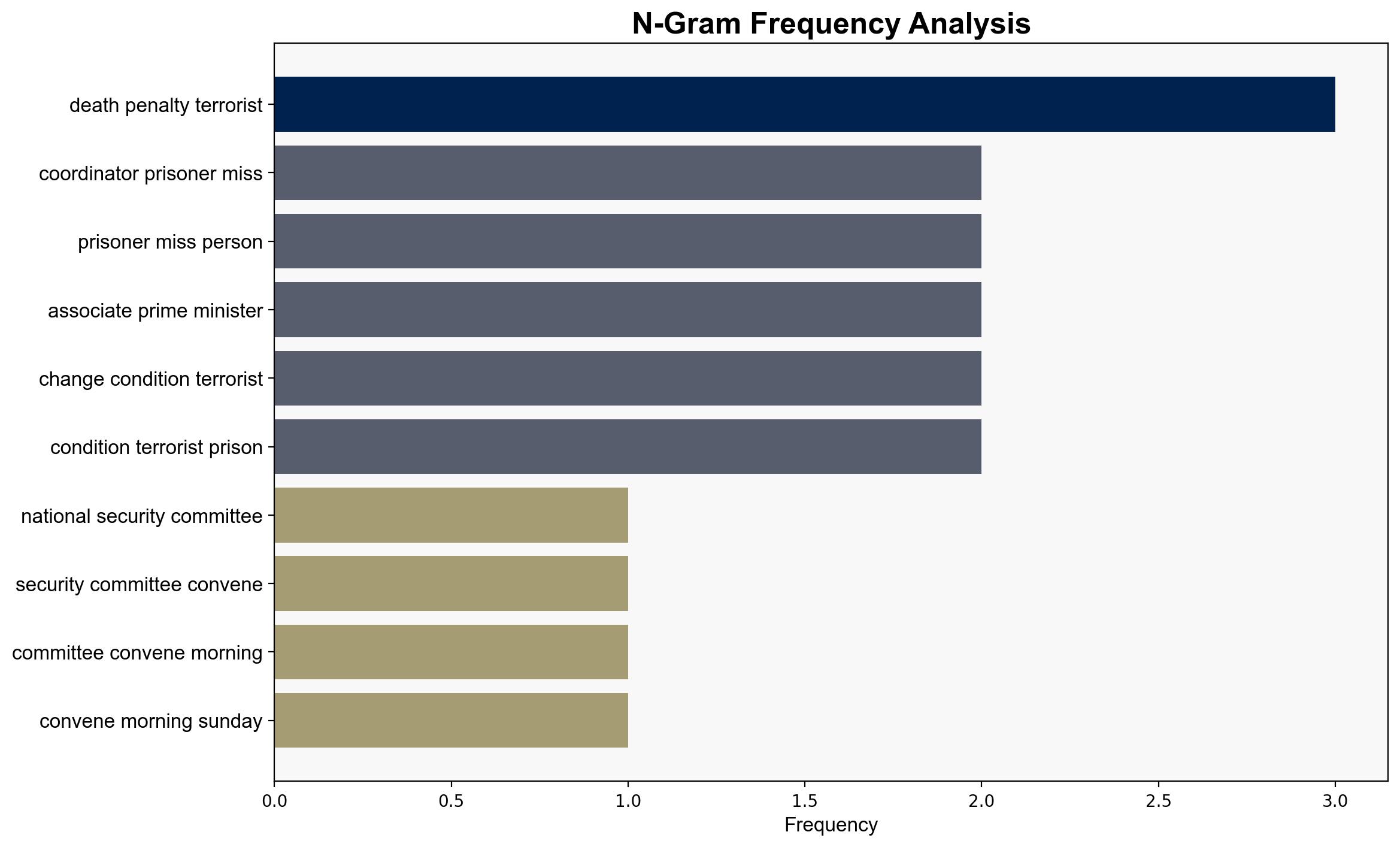Death Penalty for Terrorists Bill approved in first reading – Israelnationalnews.com
Published on: 2025-09-28
Intelligence Report: Death Penalty for Terrorists Bill approved in first reading – Israelnationalnews.com
1. BLUF (Bottom Line Up Front)
The Death Penalty for Terrorists Bill, approved in its first reading, reflects a significant policy shift in Israel’s approach to counter-terrorism. The most supported hypothesis suggests that this bill aims to deter terrorism by imposing severe consequences, although its effectiveness and potential backlash remain uncertain. Confidence level: Moderate. Recommended action: Monitor the bill’s progress and assess regional reactions to anticipate potential escalations.
2. Competing Hypotheses
1. **Deterrence Hypothesis**: The bill is primarily intended to deter future terrorist acts by imposing a severe penalty, thereby enhancing national security.
2. **Political Maneuver Hypothesis**: The bill serves as a political tool to consolidate support among hardline constituencies, with deterrence being a secondary consideration.
Using ACH 2.0, the deterrence hypothesis is better supported by the involvement of national security figures and the emphasis on security in discussions. However, the political maneuver hypothesis is bolstered by the timing and the involvement of political figures like Itamar Ben Gvir, suggesting a dual-purpose strategy.
3. Key Assumptions and Red Flags
– **Assumptions**: The deterrence hypothesis assumes that the death penalty will effectively deter terrorism, despite mixed evidence globally. The political hypothesis assumes that public support for harsh measures will translate into political gains.
– **Red Flags**: Lack of empirical evidence supporting the deterrence effect of the death penalty in terrorism cases. Potential for increased radicalization or backlash.
– **Blind Spots**: The impact on international relations and potential human rights criticisms are not addressed.
4. Implications and Strategic Risks
– **Escalation Risks**: Implementation could provoke retaliatory actions from terrorist groups, potentially escalating violence.
– **Geopolitical Risks**: The bill may strain relations with international allies concerned about human rights implications.
– **Psychological Impact**: Could influence public perception and morale, either bolstering a sense of security or increasing fear of reprisals.
5. Recommendations and Outlook
- Monitor regional reactions and potential retaliatory threats from terrorist organizations.
- Engage in diplomatic dialogues to mitigate international concerns and reinforce alliances.
- Scenario Projections:
- Best Case: Deterrence is effective, and regional stability is maintained.
- Worst Case: Increased terrorist activity and international condemnation.
- Most Likely: Mixed results with some deterrence but heightened tensions.
6. Key Individuals and Entities
– Itamar Ben Gvir
– Gal Hirsch
– Tzvika Fogel
– Gilad Kariv
7. Thematic Tags
national security threats, counter-terrorism, regional focus




